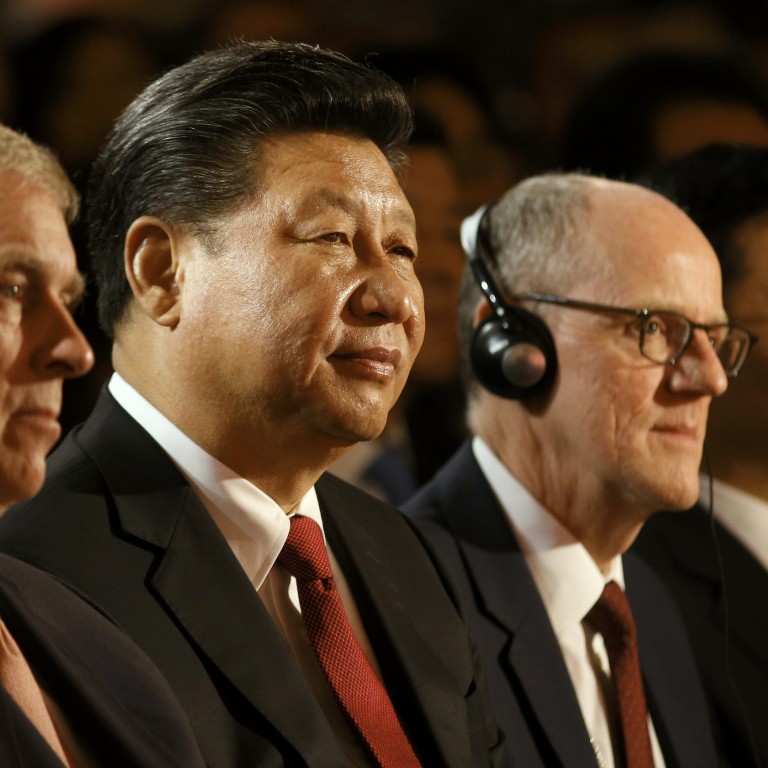
Britain backs China's bid for free-trade pact with the European Union
Comprehensive pact linking the economic giants and a scheme to connect London and Shanghai stock markets both deserve study, nations say
Britain yesterday threw its weight behind China's effort to reach a free-trade pact with the European Union, as the two countries issued a joint statement during President Xi Jinping's state visit.
The two countries called for the launch of a feasibility study for an "ambitious and comprehensive" agreement, marking the latest step by Beijing to counter the impact of a US-led trans-Pacific trade and investment deal.
They also called for a study on connecting the stock markets in Shanghai and London, after Britain won China's support for developing the British capital as an offshore yuan market.
READ MORE: Everything you need to know about Xi's UK visit
Britain is also supporting the yuan's inclusion in the "supranational" reserve currency of the International Monetary Fund, provided Beijing meets certain criteria in an upcoming review.
The joint statement was in addition to a slew of inked deals aimed at launching a "golden era" between the two nations.
Earlier this month, the United States and 11 other countries reached an agreement on the Trans-Pacific Partnership (TPP), which has prompted China to more aggressively seek trade deals to offset its impact.
Sun Yongfu, former head of the European Affairs Department at the Ministry of Commerce, said Britain and other EU countries strongly intended to cooperate economically with China. "Cooperation in economy and technology with the EU, as well as under the 'One Belt, One Road' initiative will reduce the pressure of the TPP on China," Sun told the .
The two sides also agreed to explore infrastructure projects, connecting Britain's plans to revitalise the economy in its north and upgrade infrastructure investment with China's "One Belt" initiative. Such a tie-up would also be in line with Beijing's vision to create opportunities for its own infrastructure development sector by "going overseas".
Xi is leading a formal delegation of more than 150 business executives on his first state visit to Britain.
Deals covering 150 projects, worth £40 billion (HK$478.6 billion), have been signed, and include nuclear power generation, retail sales, technology, aerospace,arts and culture, and cars and real estate.
Chinese investors have diversified in overseas markets, moving away from their traditional reliance on energy and resources. Their recent acquisitions in Britain have focused on property, car manufacturing, transportation and technology, according to Dealogic.
Cooperation in economy and technology with the EU, as well as under the 'One Belt, One Road' initiative will reduce the pressure of the TPP on China
China National Travel Service (HK) Group, Ping An Insurance, Taikang Life Insurance, as well as Wanfeng Auto Holding Group and CSR Group have made significant deals this year.
Commerce ministry spokesman Shen Danyang said Britain was China's second largest trading partner - and the No 2 investment destination - in the European Union.
Inflows of direct investment to Britain from China reached US$12.8 billion at the end of last year, up from US$1.35 billion at the end of 2010.
However, the figure remained a small share of China's total outbound direct investment, which rose 14.2 per cent to US$123.1 billion in 2014, very close to the US$128.5 billion foreign investors poured into the country.
Official data showed China's outbound direct investment rose 16.5 per cent on a yearly basis to US$87.3 billion in the first three quarters this year, involving 5,162 foreign firms in 150 countries and regions.
"We do need each other. China is facing diminishing advantages in many sectors and it will be a trend for them to seek overseas markets. It is not only limited to Britain," said Niu Li, an economist with the State Information Centre.
WATCH: A wrap-up of the challenges ahead for China and Xi Jinping

